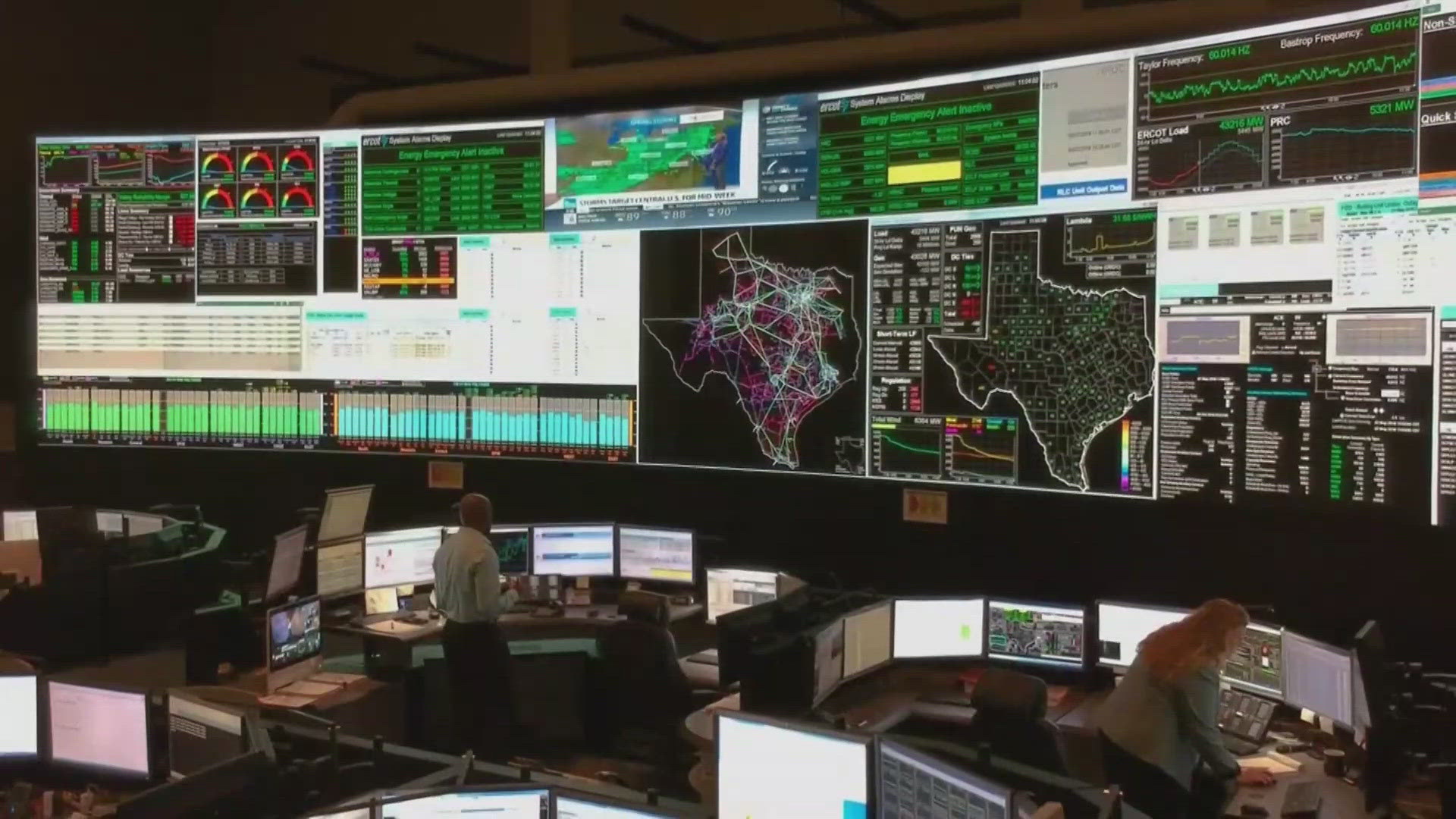TARRANT COUNTY, Texas — Texas is less likely to experience an energy emergency this summer than it was last summer, according to U.S. grid regulator NERC.
There is an 18.4 percent chance the state enters emergency operations in a worst-case scenario during peak demand this year, NERC found. The odds have fallen from 19.7 percent last summer.
The small improvement is significant, given Texas's population growth and forecasted electricity demand.
"For our chances of something wrong to go down while peak demand is going up so fast - that's headed in the right direction," said Joshua Rhodes, an energy research scientist at the University of Texas.
Pablo Vegas, CEO of the Texas grid operator ERCOT, delivered the news to board members during a summer outlook presentation Tuesday. He attributed the improvement to the seasonal weather forecast and boosted electricity supply.
Though this summer will likely be among the hottest on record, ERCOT's meteorologists say there is a only 25 percent chance summer 2024 is as hot as (or hotter than) summer 2023.
If temperatures are cooler, Texans will not need to push their air conditioners as hard after sundown as they did last year. Power plant operators would also be able to conduct routine maintenance they put off when grid conditions tighten.
"The thing that drives the Texas peak is air conditioning," Rhodes said. "If chances are it's not going to be as hot outside, then chances are lower that we'll set a new peak or exceed the current peak by very much."
Renewable energy resource growth is also key to the rosier outlook. Combined, Texas's solar panels and wind turbines produced more electricity than ever before on Tuesday.
From October 2023 to June 2024, Vegas said Texas added more than 10.8 gigawatts of electricity supply. In that time frame, companies installed and "turned on" 6.3 gigawatts of solar generation, 2.8 gigawatts of battery storage, 1.5 gigawatts of wind generation, and 146 megawatts of natural gas generation.
The newly-installed energy storage will provide an especially important safety net. Unlike other reserves, batteries immediately provide electricity to the grid when it experiences problems. The fast response can stabilize grid conditions and prevent cascading frequency problems.
ERCOT predicts there is a higher risk for problems in August than in June or July. Grid conditions will generally tighten between 8 p.m. and 10 p.m., when the sun sets and solar generation ramps down.
Vegas said ERCOT is preparing for a more active hurricane season, which may threaten infrastructure along Texas's coast.

